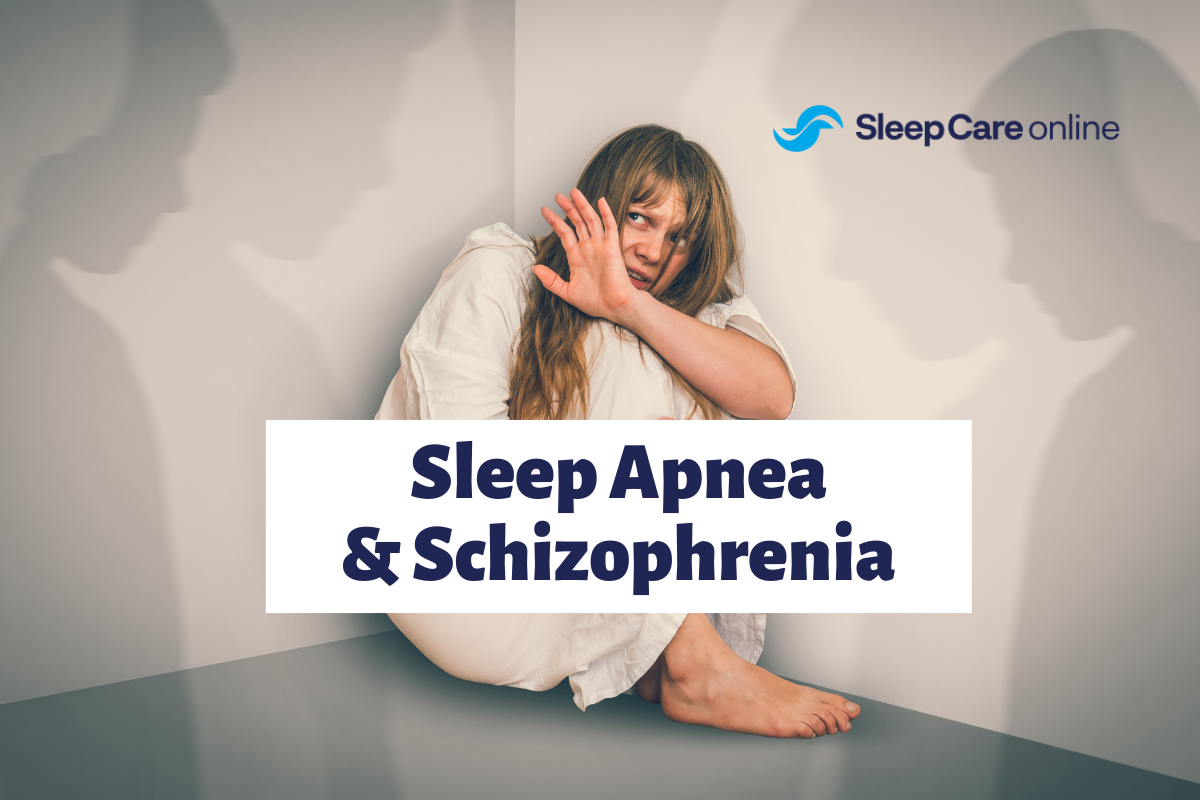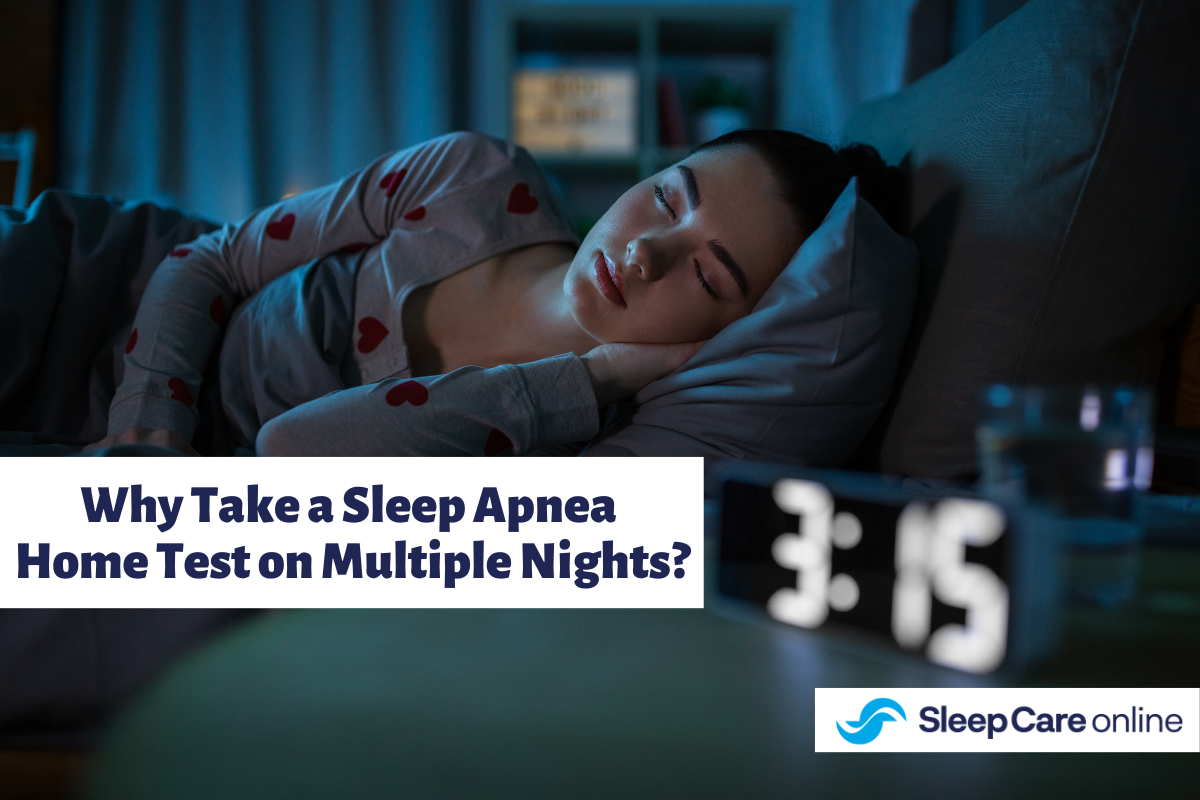
Obstructive sleep apnea (OSA) is a chronic disorder that affects roughly 22 million Americans, according to the American Sleep Association. Apneas (from the Greek word for “breathless”) are events that occur when the muscles at the back of the throat relax and cause the soft tissue to block the airway. An individual experiencing an apnea event may cease breathing for up to 10 seconds. In severe cases, apnea events can occur more than 30 times per hour. Most often, the individual does not even realize they are waking up gasping for air.
While an airway obstruction is the main cause of sleep apnea, several other risk factors must be taken into consideration.
Types of Sleep Apnea
The main types of sleep apnea are:
- Obstructive sleep apnea, the more common form occurs when throat muscles relax
- Central sleep apnea, occurs when your brain doesn’t send proper signals to the muscles that control breathing
- Complex sleep apnea syndrome, also known as treatment-emergent central sleep apnea, occurs when someone has both obstructive sleep apnea and central sleep apnea
Is Sleep Apnea a Common Problem?
50-70 million US adults have a sleep disorder, and obstructive sleep apnea is one of the most common sleep disorders. Approximately 3-7% of men and 2-5% of women have sleep apnea. Worldwide, over 100 million people suffer from obstructive sleep apnea. While sleep apnea is common, most cases go undiagnosed.
Symptoms Of Sleep Apnea
Sleep apnea often goes undiagnosed because symptoms of sleep apnea are unremarkable. Most people with sleep apnea do not notice the symptoms or see them as alarming. Symptoms usually include:
- Waking often at night gasping for air
- Morning headaches
- Dry mouth
- Loud and persistent nightly snoring
- Daytime drowsiness
- Depression and anxiety
- Difficulty concentrating and memory loss
Risks Regarding Sleep Apnea
When sleep apnea is left untreated for long periods it can begin to have an impact on physical health. Effects on health include:
- High blood pressure or heart problems. Sudden drops in blood oxygen levels that occur during sleep apnea increase blood pressure and strain the cardiovascular system. Having obstructive sleep apnea increases your risk of high blood pressure (hypertension).
- Type 2 diabetes. Having sleep apnea increases your risk of developing insulin resistance and type 2 diabetes.
- Metabolic syndrome. This disorder, which includes high blood pressure, abnormal cholesterol levels, high blood sugar, and an increased waist circumference, is linked to a higher risk of heart disease.
Causes of Sleep Apnea in Adults
Sleep apnea tends to be more prevalent in individuals 40 years of age or older1 and some studies show that there could be as much as a 3:1 ratio of men over women who suffer from it.2 Individuals with certain anatomical features, such as an underbite or overbite or naturally larger neck circumference, may be more prone to obstructive sleep apnea.
While several factors for being diagnosed with OSA may fall outside of your control, there are certain lifestyle choices that you can make to reduce symptoms of sleep apnea.
Weight and Sleep Apnea
According to the Obesity Medicine Association, sleep apnea affects as many as 45% of individuals with obesity.3 The reason is an increased number of fat tissue deposits around the upper airway and the chest. This results in restricted airway function and an increased risk of collapse.
However, studies show that a 10% decrease in body weight can result in up to a 20% decrease in sleep apnea severity. Balanced nutrition and a moderate exercise plan are great tools to help with weight management.
Smoking and Sleep Apnea
Smoking significantly increases your risk of sleep apnea. According to the Mayo Clinic, obstructive sleep apnea is 3 times more likely to occur in people who smoke than the people who don’t smoke.4 Studies show that people who smoke tend to retain fluid in the upper airway, making it more difficult for oxygen to move through. This in turn contributes to an increased risk of apneas. As a result, smoking cessation greatly reduces the risk of OSA and its symptoms.
Alcohol and Sleep Apnea
While several people often use alcohol as a nightcap before going to bed, this too can result in an increased risk of sleep apnea of up to 25%.5 Alcohol and sedatives relax the throat muscles while you sleep and may prolong sleep apnea episodes. Avoiding alcohol and sedatives will improve sleep quality. If you still want to drink, try to limit how much you consume and stop drinking two to three hours before bedtime.
Genetic Problem
While most instances of sleep apnea are rooted in lifestyle, there are some cases that are genetic in nature. Some sleep apnea patients may be born with an abnormal airway that can lead to occurrences of sleep apnea. Sleep apnea may not occur right away but begins to appear later in life. Often surgery is required to correct the abnormality.
Sleeping Positions
Along with changes in lifestyle choices such as alcohol and smoking, you can help promote better sleep by sleeping in certain positions to help reduce sleep apnea occurrences. Sleeping on your side or stomach can help reduce the frequency of apneas by helping keep the airway open while you sleep.
Abnormalities of Hormones
In some instances, hormone imbalances can affect healthy sleep. Obstructive sleep apnea is often commonly related to resistant hypertension, which may be a result of excess levels of the hormone aldosterone, which directly correlates to severe sleep apnea, hypertension, and cardiovascular disease. However, blocking this hormone can reduce OSA symptoms.
Anatomical Issues
The genetic background to sleep apnea can lead to certain individuals being born with abnormalities in the airway and throat muscles. CPAP therapy may treat sleep apnea in these cases but may not be able to completely eliminate it. Surgery is still the preferred option when anatomical variations in patients cause OSA.
What is the Treatment for Sleep Apnea?
The current gold standard for treating obstructive sleep apnea is continuous positive airway pressure (CPAP) therapy. Using a CPAP machine, pressurized air is delivered to the patient via a mask. This air helps keep the airway open throughout the night and prevents apnea episodes. CPAP machines require a prescription from a physician.
Can I Self-Diagnose Sleep Apnea?
The only way to confirm OSA is via a sleep study. Traditionally, this was completed overnight at a sleep clinic. This required unknown costs, long delays to wait for availability, spending an uncomfortable night in a foreign bed hooked up to wires, and the need to make additional plans to care for children, pets, etc. while you were away. Fortunately, today there is a more affordable, convenient option called Sleep Care online.
Sleep Care online is an affordable, convenient option to diagnose sleep apnea right from the comfort of your own home. Here’s how it works:
- With the Complete Care Package, schedule a 10-minute telehealth visit with a healthcare provider to discuss your symptoms, upcoming sleep study, test results, and treatment options.
- A multi-night, disposable home sleep apnea test is mailed to your home to be completed at your convenience.
- A physician analyzes the sleep data and provides a prescription if needed.
- Schedule an optional follow-up appointment (additional fee applies).
- We connect you to sleep experts who can offer customized sleep therapy options, assistance in equipment purchase, and initial set-up.
If you think you have sleep apnea, visit Sleep Care online today. Our customer service team is available to help answer any questions you may have. Give us a call at 866.465.4478 or email us at contact@sleepcareonline.com.
References:
- National Sleep Foundation. Sleep Apnea. Accessed June 3, 2020.
- Bixler EO, Vgontzas AN, Lin HM, et al. Prevalence of sleep disordered breathing in women: effects of gender. Am J Respir Crit Care Med. 2001;163:608-613.
- Obesity Medicine Association. Obesity and Obstructive Sleep Apnea. Accessed April 21, 2020.
- Mayo Clinic. Sleep Apnea. Accessed April 21, 2020.
- Simou E, Britton J, Leonardi-Bee J. Alcohol and the risk of sleep apnea: a systematic review and meta-analysis. Sleep Med. 2018 Feb;42:38-46.




